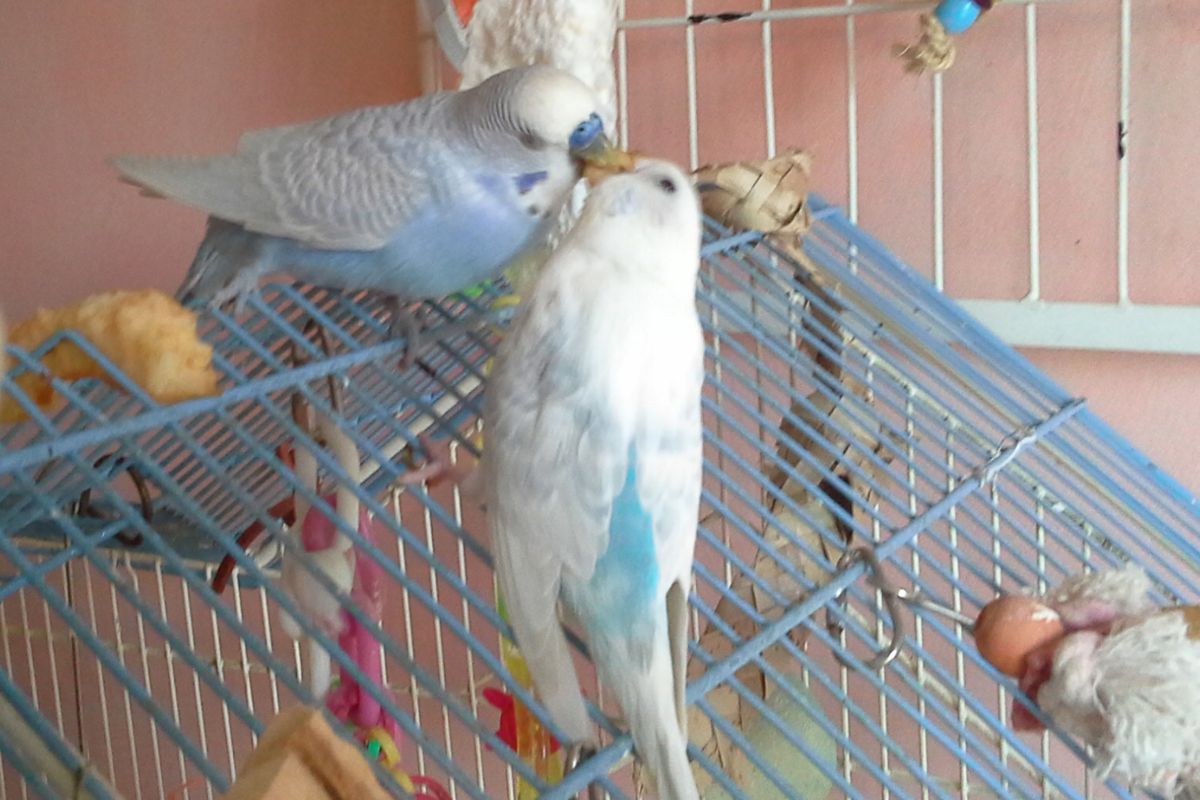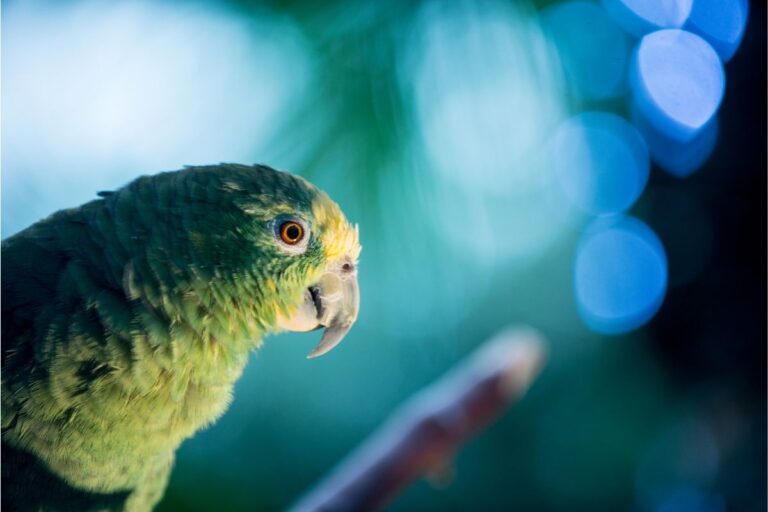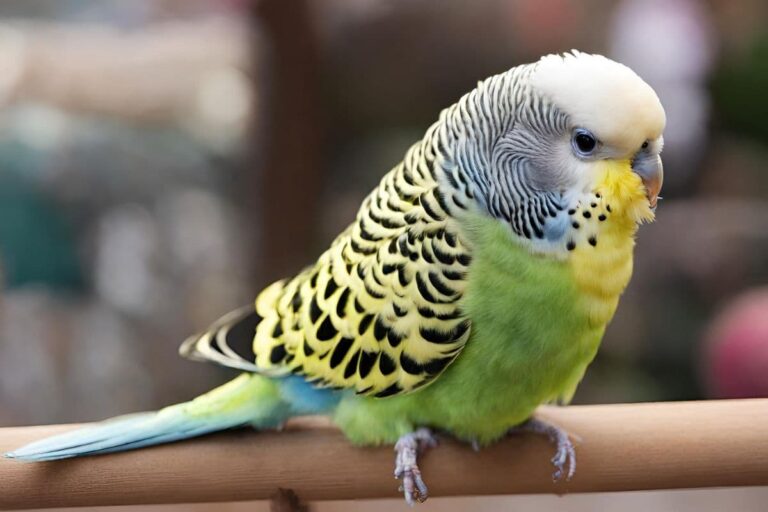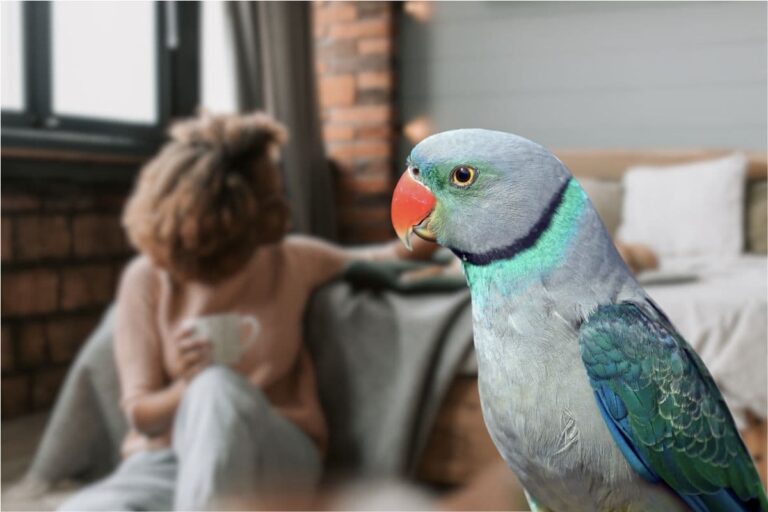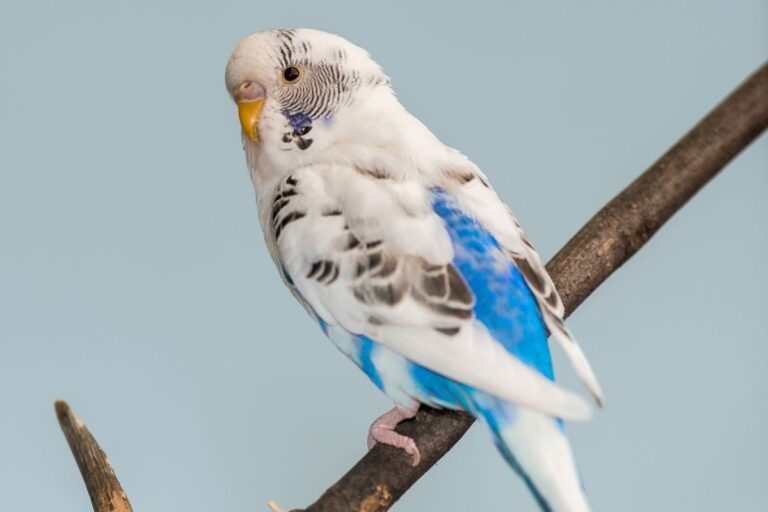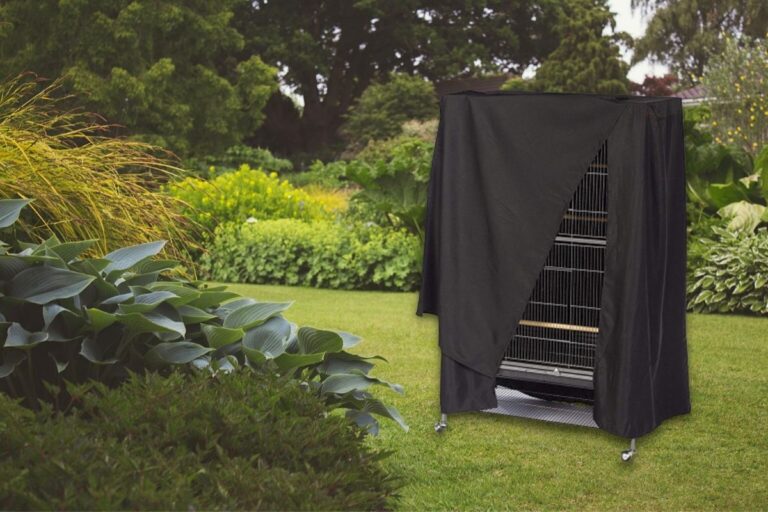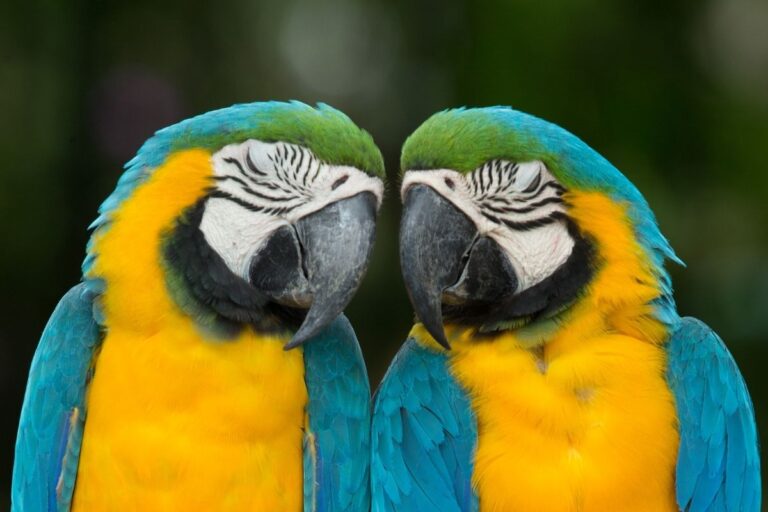Do Parakeets Mate for Life
Disclosure: The opinions expressed in this post are my own. This post may also contain affiliate links, which means that I will receive a commission if you decide to purchase through my links, at no additional cost to you. As an Amazon Associate, I earn from qualifying purchases.
We often see parakeets sticking together, but did you know that they also mate for life? These little pet birds are loyal to their mates, and they make great pets for those who appreciate the monogamous nature of their relationship.
In this article, we will explore whether parakeets as a bird species are monogamous, and look at the behavior of these fascinating and cuddly birds when it comes to mating and relationships.
Do Parakeets Mate For Life?
It is common for parakeets to mate with the same partner for life. You’ll often see mates preen each other’s feathers, feed each other, and even sleep together in the same nest. This behavior is a sign of their commitment to one another and shows that they truly care for each other.
There are a few things that can influence whether or not a parakeet will mate for life. One is the quality of the bond between the two birds. If their bond is strong, they are more likely to become mates. That could probably be why having male and female parakeets living together in the same cage often ends up with them being mates.
Another huge factor is whether or not the pair of birds has produced offspring together. If they have successfully raised babies together, they are also more likely to stay together for life.
However, even if a pair of parakeets does mate for life, there is no guarantee that they will remain together if they were to be separated. If one bird dies or is removed from the pair, the other may choose a new mate in future breeding seasons.
What is the Reason Behind Parakeets Being Monogamous?
There are a few theories about why parakeets form lifelong bonds. One is that it provides a evolutionary advantage. By staying with the same partner, parakeets can be sure that their offspring will receive the best care possible. Another theory is that monogamy provides a stable environment for raising young. This is especially important for parakeets, as they are social creatures that live in flocks.
Whatever the reason, it’s clear that parakeets benefit from forming lifelong relationships with their mates. Not only does it provide them with emotional support, but it also gives them a leg up when it comes to raising healthy and happy offspring.
How Do Parakeets Choose a Mate?
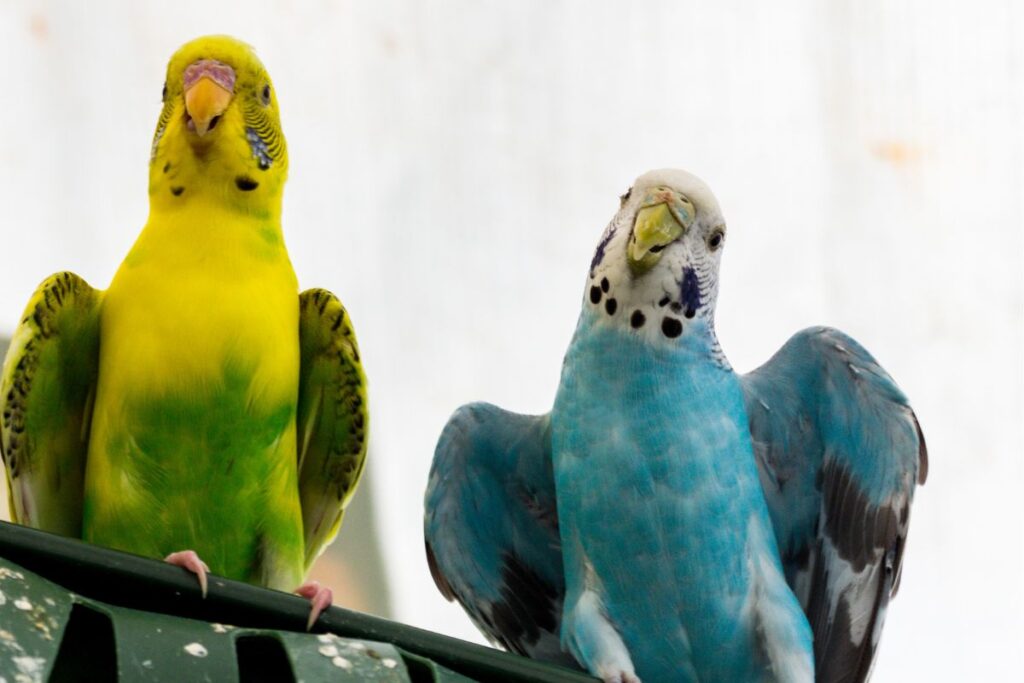
Parakeets are known to be very choosy when it comes to selecting a mate, especially the female budgies. They will often spend time observing potential mates before making their decision. During this time, they will look for signs of health and vitality, courtship behavior, as well as compatibility with their own personality.
When it comes to physical characteristics, parakeets prefer adult birds that have bright colors and glossy feathers. They also may tend to choose mates that are similar in size and shape.
Once a parakeet has chosen its mate, it will usually remain loyal for life. This is why it’s important to make sure that you provide your pet with the best possible environment and companionship.
Can a Parakeet Recognize Its Mate in a Flock?
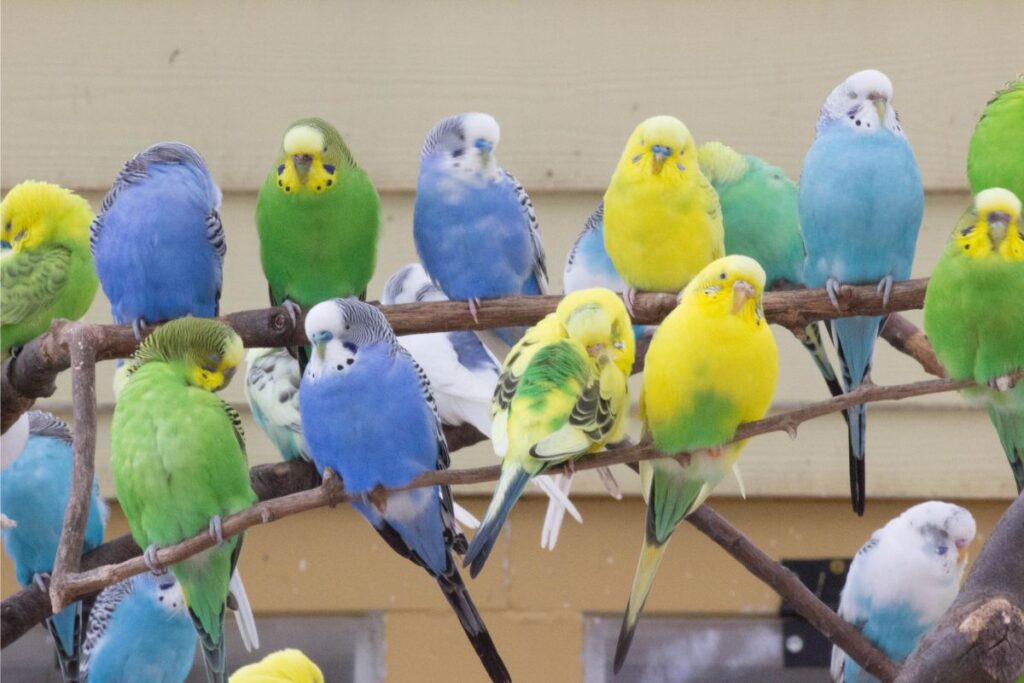
A parakeet can easily recognize its mate in a flock. Parakeets have an incredible ability to recognize their mates even when surrounded by other birds. They also have an excellent sense of sight help them out too.
Being very social creatures, spend lots of time cuddling, grooming, playing and observing their mates. So even though if they are surrounded by dozens of other birds, they’ll still be able to spot each other out by their looks and bird behaviors.
Do Parakeets Cheat on Each Other
Parakeets are known to be very loyal and devoted to their mates, so much so that when an “outsider” parakeet comes between them, its advances are usually rejected.
However, there have been cases of parakeets cheating on each other. This usually happens when one of the birds is separated from its mate for a long period of time or if the pair has not successfully raised offspring together. In these cases, the bird may look for another mate in order to fulfill its need for companions.
Male parakeets are more likely to cheat than their female parakeet counterparts by engaging in EPC (extra-pair copulation), a known behaviour even in monogamous species for the purpose of improving their reproductive success.
How Does a Parakeet React When Its Mate Dies?
When a parakeet loses its mate, it will likely become depressed and may refuse to eat. Parakeets form strong bonds with their mates and rely on them for emotional support. The social nature of parakeets lead them to having strong emotions when an event like this happens.
It is important to provide your parakeet with extra attention and love during this incredibly difficult time. You may also want to consider getting your parakeet a new companion to help it through this difficult time.
Do They Get Lonely After Losing Their Mate?
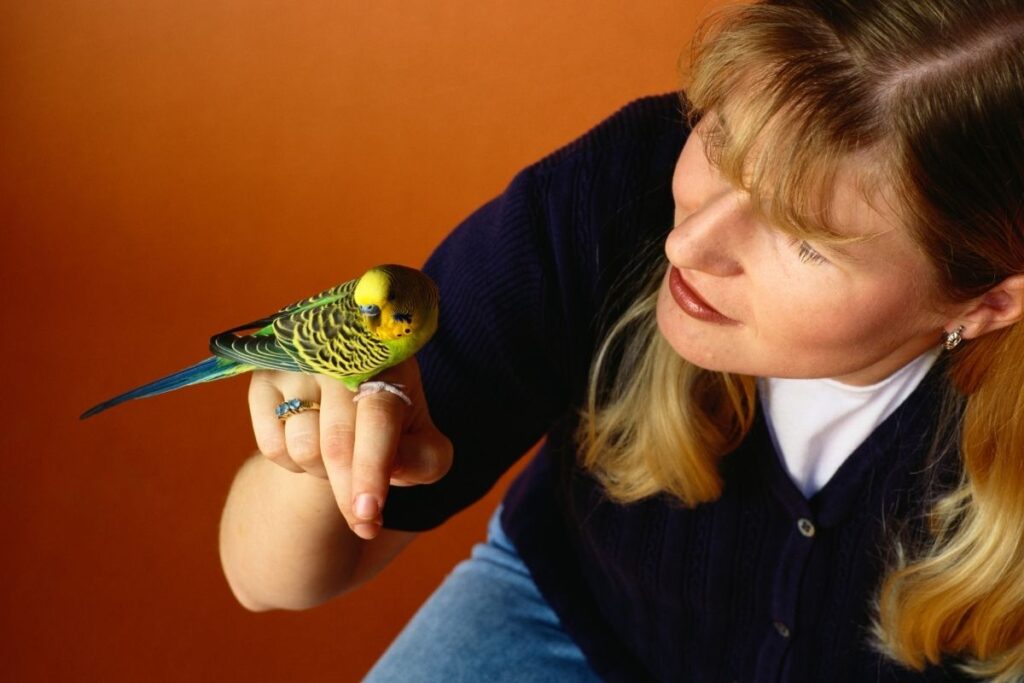
Yes, being social birds, parakeets will very likely get lonely after losing their mate. When a mate passes, the loss of companionship is felt very strongly. You may be able to observe your parakeets becoming more withdrawn and less active than usual.
It may take some time for the parakeet to grieve, and its important that you provide it lots of love and support at this stage.
Should I Replace a Parakeet’s Lost Mate?
Many people wonder if they should replace the lost bird, after one member of the mated pair dies. While it’s possible to find another mate for a single parakeet, there’s no guarantee that the new bird will bond with the old one. Furthermore, if they’ve been inseparable for many years, it may be difficult for the surviving bird to adjust to a new companion.
It’s important to identify what the emotional state of the surviving parakeet is. If the parakeet seems sad or depressed after its mate dies, it may be better to try to find a new companion. This helps the bird to cope with the loss and gives it a chance to form a new bond.
However, if the bird seems to be doing fine and content on its own, it may be best to let it grief by itself while you continue providing your love and support as you can.
Are There Benefits to Having a Long-Term Bonded Pair of Parakeets?
Yes, there are many benefits to having a long-term bonded pair of parakeets. A bonded pair of parakeets will be more likely to stay together for life and form a strong bond with each other. This can help them feel secure and safe in their environment, as they know that their mate is always there for them.
Having a long-term bonded pair also helps the birds to stay healthy and active, as they can rely on each other for emotional support. Additionally, having a bonded pair of parakeets can help them to raise their young together, which is beneficial for the health and development of the chicks.
How to Encourage Parakeets to Mate With Each Other?
Encouraging parakeets to mate with each other can be a tricky process. It is important to ensure that the environment is suitable for mating, and that both birds are healthy and of the same species.
The first step in encouraging parakeets to mate is to provide them with a comfortable, safe environment, while encouraging the mating process. This should include plenty of space, perches, toys, twigs, leaves and a nest box or nesting area.
Next, you should ensure that the birds are healthy. Take them for a bird checkup to ensure that they are doing well. If they are not, it is unlikely that they will mate at all. It is also important to provide them with a nutritious diet and plenty of exercise to keep them in good condition.
Finally, you should provide the birds with plenty of time and space to bond. This can be done by providing them with a quiet, private area away from other birds or pets. You should also give them plenty of time to interact with each other, such as through preening, feeding and playing together.
How Long After Mating Do Parakeets Lay Eggs?
It is not uncommon for parakeets to produce eggs within 24 to 48 hours following copulation. Females will lay one egg per day until the clutch is full, ranging from two to eight eggs dependent upon their breed.
Once the eggs are laid, the female parakeet will incubate the eggs for 18 to 21 days before chicks emerge. During that period, she will remain on the nest and her male counterpart will bring her food. Once hatched, both parents give aid in feeding and caring for their offspring until they are mature enough to leave the nest box.
Final Words
So it seems that parakeets do mate for life. But whether they stay together or not could also be affected by external factors, such as separating them for a long period of time. It’s also up to the bird’s individual personality and behavior that may result in them having EPC (extra-pair copulation), but it’s unlikely if the parakeets are always within the companionship of each other. Ultimately, it’s heartwarming to hear that parakeets indeed have the ability to form long-term relationships that will last a lifetime!



